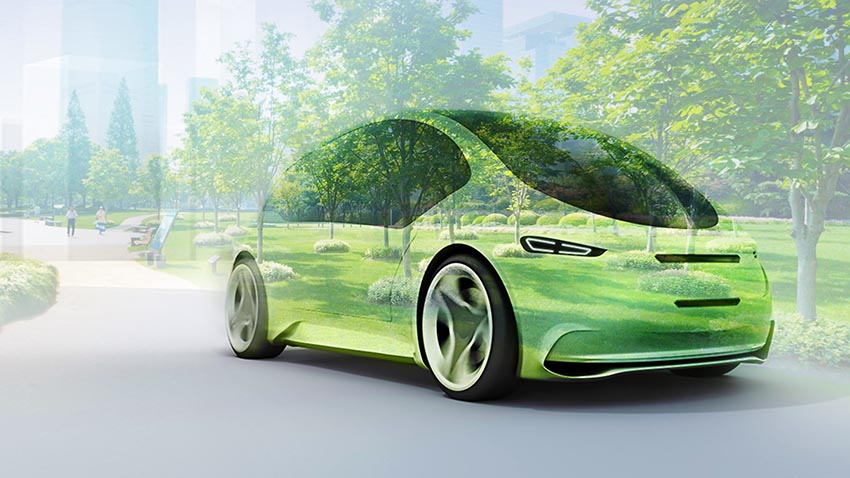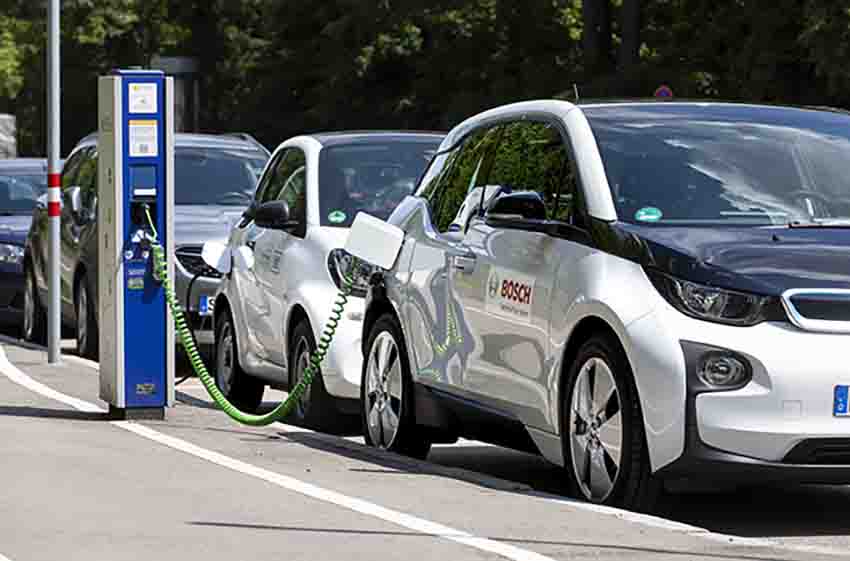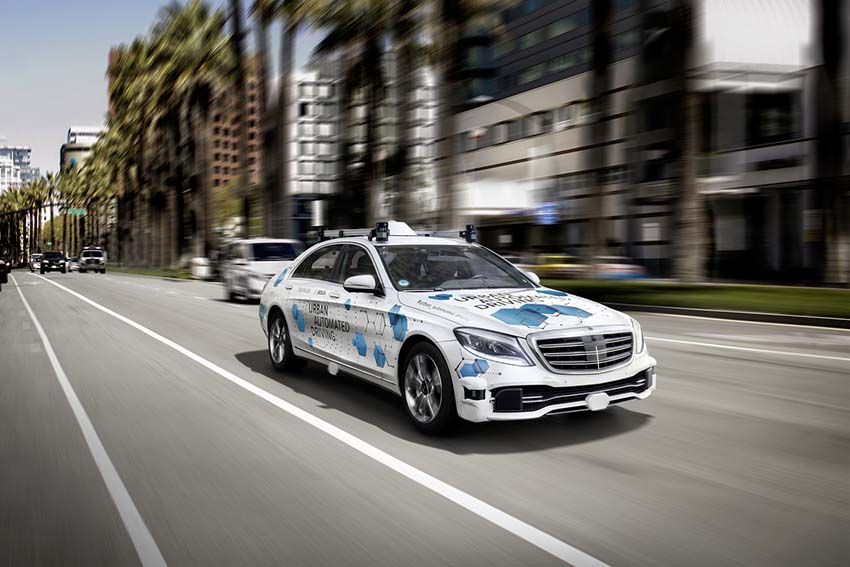In spite of the economic weakness in the automotive industry, the Bosch Group was able to maintain the previous year’s high level of sales in 2019. According to preliminary figures1, the supplier of technology and services generated sales of 77.9 billion euros last year. This puts revenue on a par with the previous year’s figure. After adjusting for exchange-rate effects, however, revenue is down 1.1 percent. Presenting the preliminary figures, Dr. Volkmar Denner, chairman of the board of management of Robert Bosch GmbH, said: “A weak economy and the steep decline in automotive production left their mark on Bosch as well. In view of the current challenges, the company’s broad diversification is having a stabilizing effect, which helps both to expand existing business and to develop new business. Despite the challenging economic situation, we continue to invest in important growth areas.” This year alone, Bosch plans to spend more than one billion euros on the electrified, automated, and connected mobility of the future. “As an innovation leader, we are helping to shape the move to alternative mobility and seizing the opportunities this presents,” Denner said.
In the 2019 business year, earnings before interest and taxes (EBIT) came to some 3 billion euros. This puts the estimated EBIT margin at just under 4 percent. Result was affected by the downturn in automotive production, particularly in the key Chinese and Indian markets, the further reduction in the share of diesel engines in cars, high restructuring costs (particularly in the mobility segment), and increasing upfront investments in projects of future importance. “The current year remains challenging for many companies, especially in the automotive industry and mechanical engineering segment – and hence also for Bosch,” said Prof. Stefan Asenkerschbaumer, CFO and deputy chairman of the Bosch board of management. “Nonetheless, in the sectors and regions that are important for us, we want to grow more strongly than the markets once again in 2020,” he added, cautioning that Bosch will have to continue to work rigorously on its profitability and adjust its manufacturing capacity.

Mobility of the future: the challenges of change
Bosch has a clear picture of the future of mobility and of how to make a success of the move to alternatives. “Tomorrow’s mobility will be not only electrified and automated, but also connected and personalized,” Denner said, adding that because of its diverse portfolio, Bosch is better prepared for the various scenarios and developments than almost any other company. However, he warned that the road to the mobility of the future presents the automotive industry with some major challenges. First, irrational arguments about the car have stifled any level-headed, nuanced debate about road traffic. Second, the industry needs more time to manage the transition. As Denner emphasized: “Particularly when it comes to jobs, a process as fundamental as the transition to electromobility can’t be achieved overnight.” Third, the economic situation is exacerbating the need for structural change in the industry. Bosch expects global automotive production to shrink in 2020 for the third year in a row. This year, the company is forecasting a further decline of 2.6 percent to some 89 million vehicles worldwide – almost 10 million units less than in 2017. Bosch is expecting this level to remain constant over the next few years, and does not anticipate any increase in global automotive production before 2025.
The company intends to adapt its cost structures and workforce to the dramatic changes and overcapacity in the industry in the most socially acceptable way possible. Denner: “We have already reached agreements on this subject with our social partners at major locations such as Bamberg, Schwieberdingen, and Stuttgart-Feuerbach.” The goal is to adopt an approach that preserves individual growth opportunities at the locations and retains as many associates, and their skills, as possible.

Mobility of the future: business opportunities for Bosch
“The move to alternative mobility will not be the end of mobility – and certainly not the end of the car,” Denner said, adding that Bosch is still well-positioned in its quest to be a leading provider of mobility solutions. He went on: “The fundamental upheaval in the automotive industry holds great opportunities for Bosch.” This includes growing demand for mobility in the future. According to the International Transport Forum (ITF), personal mobility will increase by almost 50 percent worldwide between 2015 and 2030. “For the foreseeable future, the car will remain the number one means of transport – and has excellent prospects of becoming an even safer, more convenient, and more eco-friendly means of transport,” Denner said. New technologies such as the internet of things (IoT), artificial intelligence (AI), and the fuel cell will also further advance the move to alternative mobility. As an innovation leader, Bosch will benefit from its early entry into these areas of development. Furthermore, new automakers in the electromobility market increasingly require complete solutions rather than components. He continued: “For us as a full-service provider, more systems business means sales potential running into the billions.” In the future, Bosch will also benefit from the trend toward more electronics and software: The company estimates that the market for software-intensive electronics systems will grow by 20 percent annually between now and 2030. Bosch invests some 3.7 billion euros annually in software development and currently employs 30,000 software engineers.
Upskilling the workforce: AI training program for 20,000 associates
For Denner, a qualified workforce is a strategic success factor for mastering current and future challenges. “Bosch sees itself as a learning organization in which learning is integrated into day-to-day work,” he said. In addition to its regular investments in upskilling its workforce, Bosch is launching a new AI training program for nearly 20,000 associates. It includes training formats at three different levels for managers, engineers, and AI developers and includes guidelines for using AI responsibly.

Beyond the mobility of the future: developing new technologies
Bosch wants to go beyond the mobility of the future to develop new technologies and promote climate action. In doing so, the company wants to maintain a balance between the economy, the environment, and corporate social responsibility. On its path to becoming a leading IoT company, Bosch is relying on AI. “We want to use industrial AI to make our products function as assistants for our customers – which we hope will make us one of the global leaders in this domain,” Denner said. To this end, Bosch is investing 100 million euros in its AI campus in Tübingen alone. The company is also driving forward its own climate action initiatives: At the end of 2019, Bosch achieved carbon neutrality for all its locations in Germany; by the end of 2020, the same will be true of all Bosch locations worldwide. “Climate action and energy efficiency offer Bosch further business opportunities,” Denner said. In Germany alone, up to 45 percent of electricity will come from renewable sources by 2025 (source: BMWi). “This is why we will be investing 100 million euros in growing our heat pump business over the next few years.”
